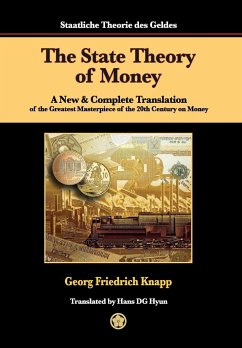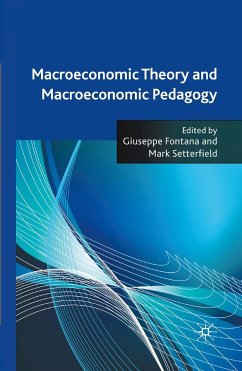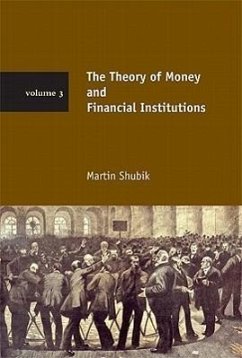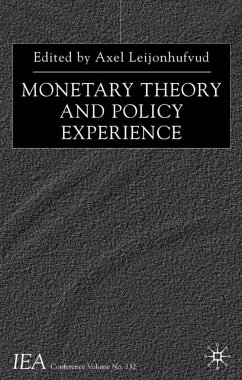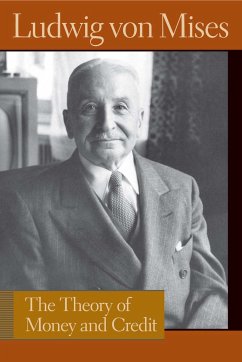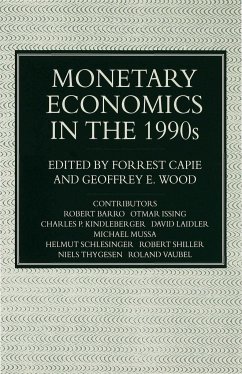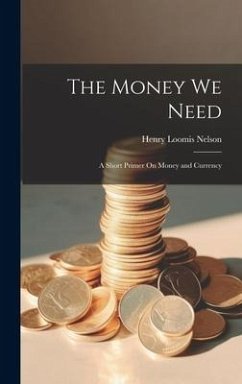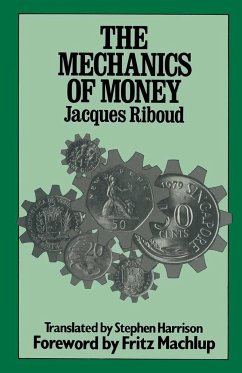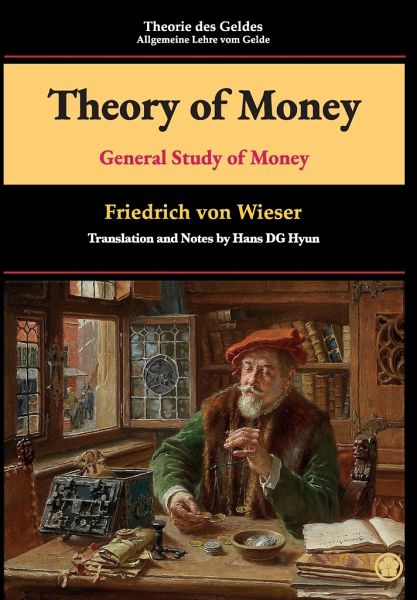
Theory of Money
General Study of Money
Übersetzer: Hyun, Hans Dg
Versandkostenfrei!
Versandfertig in über 4 Wochen
43,99 €
inkl. MwSt.

PAYBACK Punkte
22 °P sammeln!
The first English translation of Friedrich von Wieser's concluding work in economics, unifying his socio-historical investigation into the nature of 'power' and 'monetary theory,' complementing Knapp and Max Weber. An unexpected encounter - a key figure in the Great Triumvirate that founded the Austrian School of Economics incorporates Keynesian elements into his theory of money. His works "exhibit some of the major features of Keynes's analysis in 'A Treatise on Money,' namely the existence of an endogenous money supply, the dominant role of the banking system in the process of money creation...
The first English translation of Friedrich von Wieser's concluding work in economics, unifying his socio-historical investigation into the nature of 'power' and 'monetary theory,' complementing Knapp and Max Weber. An unexpected encounter - a key figure in the Great Triumvirate that founded the Austrian School of Economics incorporates Keynesian elements into his theory of money. His works "exhibit some of the major features of Keynes's analysis in 'A Treatise on Money,' namely the existence of an endogenous money supply, the dominant role of the banking system in the process of money creation, the distinction between the circulation of national income and of capital, and the role of individual and social beliefs in explaining the levels of economic variables" (Richard Arena & Neri Salvadori). Similar to Georg Simmel's perspective, Wieser argues that as money gains universal recognition and acceptance as a general equivalent due to the 'mass habit of acceptance,' it transforms into a 'social power' that binds people. The power it holds evolves, becoming stronger than the initial power of the 'wise individual' who introduced it or the public imitating him. Therefore, in this sense, the ultimate form of money is not merely the outcome of the efforts of those who initially brought it into existence. Money is a historical-societal formation, wielding supremacy over people and intricately intertwined with power relationships. It serves as a means of transfer payment, facilitating the transfer of 'market-rulership.' "Why is Wieser neglected in the Austrian Revival? Perhaps because economic theorists and policy makers in many countries have again become very interested in the possibilities of the market and in the applicability of the quantity theory of money - whereas Wieser was critical of both. Or perhaps because Wieser advocated an alliance of economics and sociology (...) Wieser's work displays at least two distinguishing features: (1) his endeavour to demonstrate economic theory as a coherent whole: he wanted to be a "hedgehog", not a "fox"; (2) his endeavour to demonstrate there is no coherence - in the sense of "harmony" - in capitalism (M.H.J. Dullaart). "Wieser bridged the ideas of Menger and Veblen" (Robert B. Jr. Ekelund). "Wieser is to be compared with Pareto, Schumpeter, Weber, Werner Sombart, and, more recently, John Kenneth Galbraith." (Warren Samuels).



